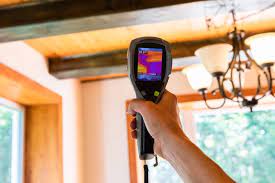
Less is said about indoor air quality, despite the fact that many people warn of the dangers of outdoor air pollution. Shouldn't we be as concerned about the quality of our indoor air given that we spend the majority of our time indoors—at home or at work?
Like outdoor air, indoor air can be more contaminated and, like it, can trigger allergic reactions, asthma attacks, and respiratory issues. Indoor air can be contaminated by a variety of factors, including pet dander, mold, and contaminated outdoor air.
Modern windows and doors are more well sealed than ever, but this may not necessarily be a good thing. Your home's airtight construction can save your energy expenditures while simultaneously keeping outside air out. The likelihood that pollutants may build up in your home and cause poor indoor air quality and health problems increases when there is insufficient internal air circulation. In your home, the following pollutants may amass: When something burns, such as when you light your stove, a gas called carbon monoxide (CO) is created. CO can cause a variety of symptoms, including headaches, nausea, confusion, and even death, if you are exposed to it for a lengthy period of time. Radon is a radioactive gas that enters homes undetected and has no colour or smell.
Air is a necessity for life, and a balanced gas composition makes for healthy breathing. By keeping an eye on this, you can spot pollutant concentrations that are higher than what is allowed for ambient air quality. The environment, whether indoors or out, has the capacity to poison people equally and result in long-term health issues. Among them are pneumonia, systemic hypertension, and chronic respiratory diseases.
Every home ought to have a smoke detector and a carbon monoxide alarm to preserve the occupants' safety there. You ought to consider establishing regular indoor air monitoring in Vancouver. If you have questions or need air quality testing in Vancouver, get in touch with Ace Environmental Services Ltd.